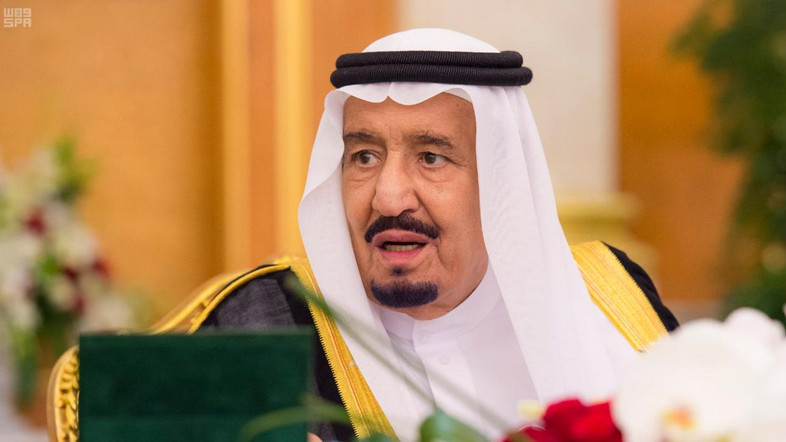EuroNews (9 May 2017)
Emmanuel Macron might be forgiven for his slow march through the Louvre courtyard on Sunday to celebrate with his supporters. It was a rare chance to catch his breath after an election campaign that’s sometimes resembled a political punch-up.
But the gloves are no where near off as France’s president-elect prepares for another round; next month’s decisive battle for control of parliament, the National Assembly.
According to political analyst Nabila Ramadani he need to win the fight in order to do anything: “The first major challenge that Emmanuel Macron is facing will be to secure a working majority at the National Assembly so that he can effectively govern and push through his reforms. He is very much aware that France has deep seated institutional problems and indeed structural problems.”
Under France’s constitution, the president is supreme political leader ,and can choose a prime minister, who then recommends government ministers, all of them normally from the president’s party.
The legislative elections could result in one of three different scenarios. If Macron obtains an outright majority in parliament, he will be able to enact his policies.
A second possibility is that Republique En Marche! could have the biggest group of MPs but not a majority, leaving a Macron government with only limited room to manoeuvre and in need of allies.
A third outcome could be that he faces a hostile majority in the lower house of parliament and is forced to appoint a prime minister outside his party, a period known in France as “cohabitation”
But that’s only happened three times in recent history* and each and every occasion will likely be remembered for awkwardness of the arrangement as well as each government’s difficulty to make progress or please anyone.
Macron will no doubt be hoping to ride the wave of popularity towards next month’s elections.
With France’s Socialists and conservatives in disarray his team will be looking to herd their disaffected and traditional supporters.
But Macron faces an uphill task as a new survey suggest most French people don’t want Republique En March to have a parliamentary majority.
*Ed – 1986-1988, Mitterrand-Chirac; 1993-1995 : Mitterrand -Balladur and 1997-2002 Chirac -Jospin
((http://www.francetvinfo.fr/elections/presidentielle/legislatives-61-des-francais-ne-souhaitent-pas-qu-emmanuel-macron-dispose-d-une-majorite-absolue-a-l-assemblee-selon-un-sondage-ipsos-sopra-steria_2180021.html))
No comments yet.
- ENERGY EFFICIENCY ENTREPRENEUR: EU TARGETS SHOULD BE HIGHER Europe - EU 10.05.2017
-
 SAUDI INVITES IRAQ, MOROCCO, PAKISTAN AND TUNISIA ATTEND US ISLAMIC ARAB SUMMIT
Iraq
10.05.2017
SAUDI INVITES IRAQ, MOROCCO, PAKISTAN AND TUNISIA ATTEND US ISLAMIC ARAB SUMMIT
Iraq
10.05.2017
- MACRON'S BATTLE FOR THE NATIONAL ASSEMBLY Europe - EU 10.05.2017
-
 UK NEEDS POST BREXIT DEALS WITH TURKEY, SOUTH AFRICA, NOT JUST EU: FORD
Europe - EU
10.05.2017
UK NEEDS POST BREXIT DEALS WITH TURKEY, SOUTH AFRICA, NOT JUST EU: FORD
Europe - EU
10.05.2017
- IRAQ FORCES MAKE SWIFT PROGRESS IN WEST MOSUL Iraq 10.05.2017
-
25.01.2016
THE ARMENIAN QUESTION - BASIC KNOWLEDGE AND DOCUMENTATION -
12.06.2024
THE TRUTH WILL OUT -
27.03.2023
RADİKAL ERMENİ UNSURLARCA GERÇEKLEŞTİRİLEN MEZALİMLER VE VANDALİZM -
17.03.2023
PATRIOTISM PERVERTED -
23.02.2023
MEN ARE LIKE THAT -
03.02.2023
BAKÜ-TİFLİS-CEYHAN BORU HATTININ YAŞANAN TARİHİ -
16.12.2022
INTERNATIONAL SCHOLARS ON THE EVENTS OF 1915 -
07.12.2022
FAKE PHOTOS AND THE ARMENIAN PROPAGANDA -
07.12.2022
ERMENİ PROPAGANDASI VE SAHTE RESİMLER -
01.01.2022
A Letter From Japan - Strategically Mum: The Silence of the Armenians -
01.01.2022
Japonya'dan Bir Mektup - Stratejik Suskunluk: Ermenilerin Sessizliği -
03.06.2020
Anastas Mikoyan: Confessions of an Armenian Bolshevik -
08.04.2020
Sovyet Sonrası Ukrayna’da Devlet, Toplum ve Siyaset - Değişen Dinamikler, Dönüşen Kimlikler -
12.06.2018
Ermeni Sorunuyla İlgili İngiliz Belgeleri (1912-1923) - British Documents on Armenian Question (1912-1923) -
02.12.2016
Turkish-Russian Academics: A Historical Study on the Caucasus -
01.07.2016
Gürcistan'daki Müslüman Topluluklar: Azınlık Hakları, Kimlik, Siyaset -
10.03.2016
Armenian Diaspora: Diaspora, State and the Imagination of the Republic of Armenia -
24.01.2016
ERMENİ SORUNU - TEMEL BİLGİ VE BELGELER (2. BASKI)
-
AVİM Conference Hall 24.01.2023
CONFERENCE TITLED “HUNGARY’S PERSPECTIVES ON THE TURKIC WORLD"









